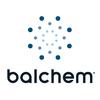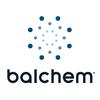
Content sponsored by:
Balchem Animal Nutrition
High Milk Production is a Biomarker for Wellness
Published: October 27, 2023
Source : Ken Sanderson, DVM Sr. Director of Business Development Balchem Animal Nutrition & Health
Dairy cows are often thought of as metabolic super athletes, requiring hard work and a herculean effort to achieve high milk production.
In reality, it’s just the opposite. Productivity is an expression of health and vitality, not a result of the cow working under stress.
Put a cow in a healthy environment, provide adequate nutrition and they’ll fully express their genetic potential in the form of exceptional milk production. Instead of involving hard work, we need to view high milk and component production as the ultimate indicator of wellness.
Dairy cows are genetically selected to support high milk production, making it the animal’s default state. What restricts a cow from expressing its biological potential are the external factors, like heat stress, overcrowding or disease. One of the biggest barriers to milk production is inadequate nutrition. New cuttingedge research provides insights into requirements for additional nutrients that should be included in every ration for every cow to support her biological capacity for high production. And one of these required nutrients is choline.
Choline is a Required Nutrient for Optimizing Dairy Cow Milk Production
Choline is recognized by scientists as a required nutrient for most mammals. In dairy cattle, new studies are showing that choline is required for a successful lactation, which must first begin with a healthy transition period. Central to a healthy transition period is the ability of the liver to make enough glucose to support milk production. When nutrition and metabolism cannot keep up with the demands of milk production, cows fail to reach their genetic potential.
Over the past 25 years, several studies and a meta-analyses (Arshad et al., 2020) demonstrated approximately a 2,2 kg/cow/day increase in milk production when diets are supplemented with rumen-protected choline during late gestation and early lactation.
Effect of feeding ReaShure during the transition period on milk production over the full lactation

Five subsequent peerreviewed studies, Zenobi et al., (2018), Bollatti et al., (2020), Holdorf et al., (2023), Swartz et al., (2023), and Potts et al., (2020), demonstrated a milk response ranging from 2,1 kg/cow/day to 8,7 kg/cow/day when cows were supplemented with ReaShure® Precision Release Choline. What’s remarkable about these trials is that milk production responses were seen in very high-producing cows, regardless of body condition score. It’s becoming abundantly clear that choline isn’t just for cows with problems. It’s a required nutrient for essentially every cow.
Choline is a Required Nutrient for Future Generations
Epigenetics is the study of how the in-utero environment can modify gene expression without changing the genes themselves. DNA methylation is a key mechanism of epigenetics and involves adding a methyl group to the DNA molecule. DNA methylation regulates gene expression by effectively turning some genes on or off. One requisite for DNA methylation is the availability of molecules named methyl-group donors, such as choline. Choline is an efficient methyl donor with three methyl groups, in comparison to most others that offer only one. Epigenetic changes during gestation that modify the phenotype of the calf after birth are called fetal programming. The increased demand for choline during pregnancy and lactation represents a threat to the developing fetus. If the supply of methyl group donors is insufficient, gene expression in the calf will be negatively affected. There is abundant evidence that choline deficiency during gestation can also negatively affect placental development, fetal growth, cognitive function, and the offspring’s immune system (Jiang et al., 2014).
New research studies conducted at the University of Florida, Michigan State University and the University of Wisconsin are helping to better understand the benefits of fetal programming when choline is supplemented to prepartum dairy cows. Researchers were able to demonstrate a significant improvement in key immune markers in the newborn calves and saw an improvement in growth of about 45 g per day, resulting in heifers being 36 kg heavier at first calving. These same heifers produced an additional 1,8 kg of milk per day during their first lactation as compared to the calves whose mothers did not receive choline supplementation during the transition period.
An unexpected discovery from these same studies is that choline supplementation pre-partum may increase the volume of colostrum produced. In the University of Wisconsin trial, researchers saw a 60% increase in the amount of colostrum produced and in the Michigan State trial they saw an 80% increase in colostrum volume when pre-fresh cows were supplemented with choline. More research is planned to better understand the mechanisms that contributed to these remarkable gains.
Effect of ReaShure-XC supplementation on colostrum yield

Choline Is Required for a Healthy Transition Into Profitable Lactation
The transition to lactation is a metabolically challenging period for a dairy cow as they biologically prepare for calving and the onset of lactation.
Choline is recognized as a required nutrient to help cows utilize the fat (NEFA) mobilized from body stores. NEFA production is the cows’ natural way of managing negative energy balance during the early stages of lactation and is a primary source of energy for many functions. Metabolic issues occur when the cow’s liver cannot effectively process all the NEFA being mobilized, which can adversely affect liver function. This leads to increased ketones in the blood (ketosis), which can impair feed intake, reduce milk yield, and can lead to or exacerbate other metabolic disorders.
ReaShure has a 25-year track record of helping cows make a healthy transition from the dry period into a productive and profitable lactation.
New research is helping us understand why choline is a required nutrient for essentially every cow regardless of milk production level, body condition score or health status. Virtually all cows will profitably respond to choline supplementation during the transition period. A short-term investment during transition can result in long-term returns through higher peaks, greater full lactation milk yields and through the health, well-being, and productivity of the next generation.
So, the next time you see your cows filling up the bulk tank, don’t think of them as working hard. Rather, think of them as simply doing what we’ve bred them and fed them to do: fully express their health and vitality in the form of an abundance of wonderfully nutritious milk.
Related topics:
Recommend
Comment
Share

10 de junio de 2025
You are right metabolisable choline supports dairy cows in transition period in producing to their genetic potential. We have a product called Cholymet that combines rumen inert choline, methionine and lysine which has produced phenomenal results in terms of milk yield and constituents, a clear manifestation of cow's wellbeing.
Recommend
Reply
Livestock Management Department
2 de septiembre de 2024
"Metabolic Super Athletes" aptly describes genetically enhanced dairy cows, which excel in producing higher quantities of milk despite facing metabolic, oxidative, thermal, and disease-related stresses. The hypothalamus plays a crucial role in meeting the demands set by commercial farmers, driving dairy farming closer to the model of factory farming.
Recommend
Reply

Would you like to discuss another topic? Create a new post to engage with experts in the community.





